detail profile ruth hiatt

Ruth Hiatt
Ruth Redfern
atau dikenal sebagai
Riwayat Hidup
From Wikipedia
Ruth Hiatt (January 6, 1906 – April 21, 1994) was an actress in motion pictures beginning in the silent film era.
She is best known for performing in 1920s comedies directed by Jack White, Norman Taurog, and Mack Sennett.
As teenager she was discovered by comedian Lloyd Hamilton.
She became his leading lady at United Artists studios in 1922.
Hiatt was a former classic dancer who was Hamilton's successor to Irene Dalton.
Their first work together is the short comedy The Speeder (1922).
It is a production of the Hamilton Comedy Film Company.
In Smith's Baby (1925) Hiatt is the female lead with Raymond McKee.
Sennett cast Hiatt and McKee with Our Gang child star Mary Ann Jackson in 1927.
The short comedies continued the Jimmy Smith series with titles like Smith's Pony (1927), Smith's Cook (1927), Smith's Cousin (1927), and Smith's Modiste Shop (1927).
The movies were produced by Pathe Pictures.
She appeared in the second chapter of the Ken Maynard Sunset Trail (1932).
Hiatt's film career endured through 1941.
Some of her later appearances were in the Three Stooges comedy Men In Black, the Our Gang entry Beginner's Luck, Just Speeding (1936) and Double Trouble (1941).
In August 1922, Hiatt modeled for Beckman Furs of West 7th Street in Los Angeles, California.
She won first prize for beauty at the annual Venice Beach bathing beauties parade in August 1923.
She wore a costume of black and white checkered silk, with hat and slippers that matched.
The Western Association of Motion Picture Advertisers (WAMPAS) selected Hiatt among its thirteen baby star actresses for 1924.
Blanche Mahaffey, Carmelita Geraghty, and Clara Bow were also chosen.
Hiatt was blonde but one reporter covering the WAMPAS banquet in San Francisco, in December 1923, wrote that she was brunette.
Ruth Hiatt died in Montrose, California in 1994 of congestive heart failure.
Info Pribadi
Peran Yang Di Mainkan Ruth Hiatt
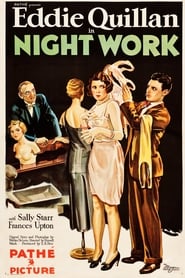 Willie as an assistant windowdresser is...
Willie as an assistant windowdresser is...Night Work 1930
Willie, as an assistant window-dresser, is the lowest man on the totem pole at a department store. To add insult-to-injury Willie is also the store's designated 'Fired Man."; when a disgruntled customer demands that somebody-must-be-fired, Willie is summoned and summarily fired, only to be rehired when the now-satisfied customer has departed. Willie inadvertently adopts a four-year-old orphan at a cost of ten-dollars a week, and things go from bad to worse since Willie doesn't make ten-dollars a week. But, with the help of Mary, a beautiful young nurse, Willie manages to turn some corners and improve his lot in life, albeit with some skids along the way.
 The film begins with a family...
The film begins with a family...The Rodeo 1929
The film begins with a family at home having a meal. The biggest laugh involved some candles being substituted for asparagus and the hilarity that resulted when the people and dog at them. Later, the decide to go to the rodeo but 1001 problems occur on the way there in the car.
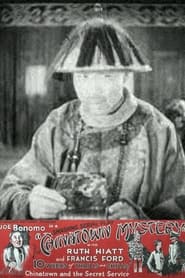 Restored by the George Eastman House...
Restored by the George Eastman House...The Chinatown Mystery 1928
Restored by the George Eastman House in 2001, this 1928 serial was considered a “last hurrah” for the silent-era serial, and brought together some of the biggest names of the era: director J.P. McGowan, actors Francis Ford and Joe Bonomo (a carnival strongman-turned-actor), producer Trem Carr (who would later help found Monogram Pictures), and a slew of silent-era supporting icons such as Ruth Hiatt, Grace Cunard, and more. Chapter names like “The Clutching Claw,” “The Devil’s Dice, “Galloping Fury,” and “The Invisible Hand” offer all one needs to know of the film’s concerns: to promise and deliver as much action and suspense as possible, and move our intrepid hero and heroine from one perilous situation to another. One of the biggest stars of the early silent era and a successful serials director in his own right, Francis Ford was the brother of director John Ford.
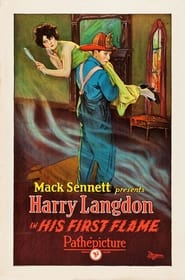 Fire chief Amos McCarthy a confirmed...
Fire chief Amos McCarthy a confirmed...His First Flame 1927
Fire chief Amos McCarthy, a confirmed misogynist, counsels his nephew Harry Howells to avoid matrimony at all costs. Still, the lovestruck Harry is determined to marry his sweetheart Ethel. All that changes, though, when it turns out Ethel is a faithless gold-digger. Disillusioned, Harry spends the night in his uncle's fire house to try and forget his troubles... until the clamor of a fire alarm presents the bumbling Harry with a chance to be a hero.
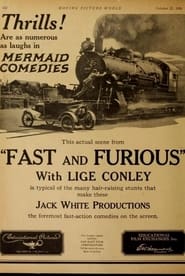 Lige Conley stars in Fast and...
Lige Conley stars in Fast and...Fast and Furious 1924
Lige Conley stars in "Fast and Furious" (1924), a fast-paced silent comedy. Conley's sidekick in this film, as with several in this series of "Mermaid" comedies Conley made for Educational and Jack White, is African-American character actor Spencer Bell. The chase in reel two lifts a number of gags from Buster Keaton films.
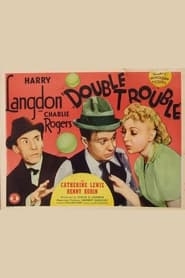 Harry Langdon and Charley Rogers star...
Harry Langdon and Charley Rogers star...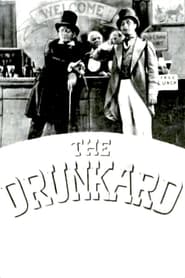 An unscrupulous lawyer uses alcohol to...
An unscrupulous lawyer uses alcohol to...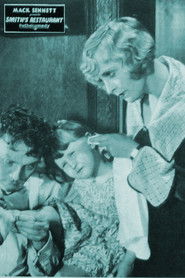 The Smiths open a restaurant but...
The Smiths open a restaurant but...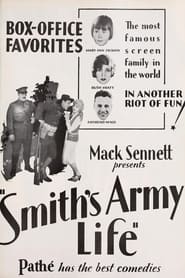 19th release in The Smith Family...
19th release in The Smith Family...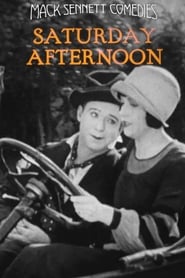 Harry and his friend have planned...
Harry and his friend have planned...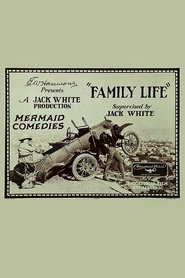 The Duff family cant seem to...
The Duff family cant seem to... Short silent comedy starring Chaplin imitator...
Short silent comedy starring Chaplin imitator...